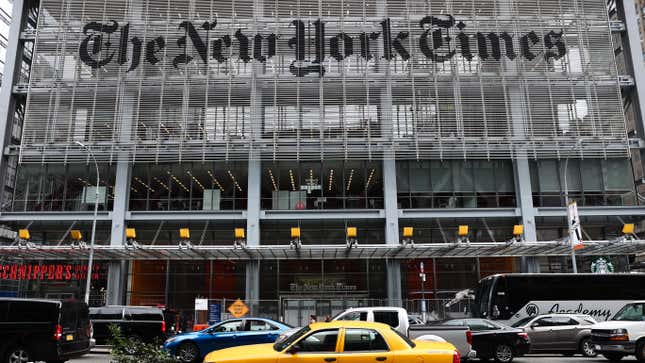The New York Times Is Failing Trans People
NYT contributors wrote an open letter outlining “serious concerns" with the paper's reporting on trans and non-binary people. Its response was infuriating.
Entertainment

On Wednesday morning, a group of nearly 200 New York Times writers and contributors made public an open letter outlining “serious concerns about editorial bias in the newspaper’s reporting on transgender, non-binary and gender-nonconforming people.” Within hours, thousands more writers, as well as NYT subscribers and readers, had signed on in support. The letter was a brave and principled stance, meticulously executed; it outlined the flaws in the existing biased reporting, such as the misidentification of a source in a massive gender therapy story by Emily Bazelon and a decision to leave out crucial context from a Katie Baker story on students changing gender identity without their parents knowing.
In response, the Times ignored this letter and chose only to acknowledge a separate letter delivered by GLAAD (the Gay & Lesbian Alliance Against Defamation), and rather dismissively. The PR response took a classic stance favored by institutional journalism: the high-handed separation of journalists from “advocates.”
-

-

-

-

-

-

-

-

-

-

-

-

-

-

-

-

-

-

-

-

-

-

-

-

-

-

-

-

-

-

-

-

-

-

-

-

-

-

-

-








































